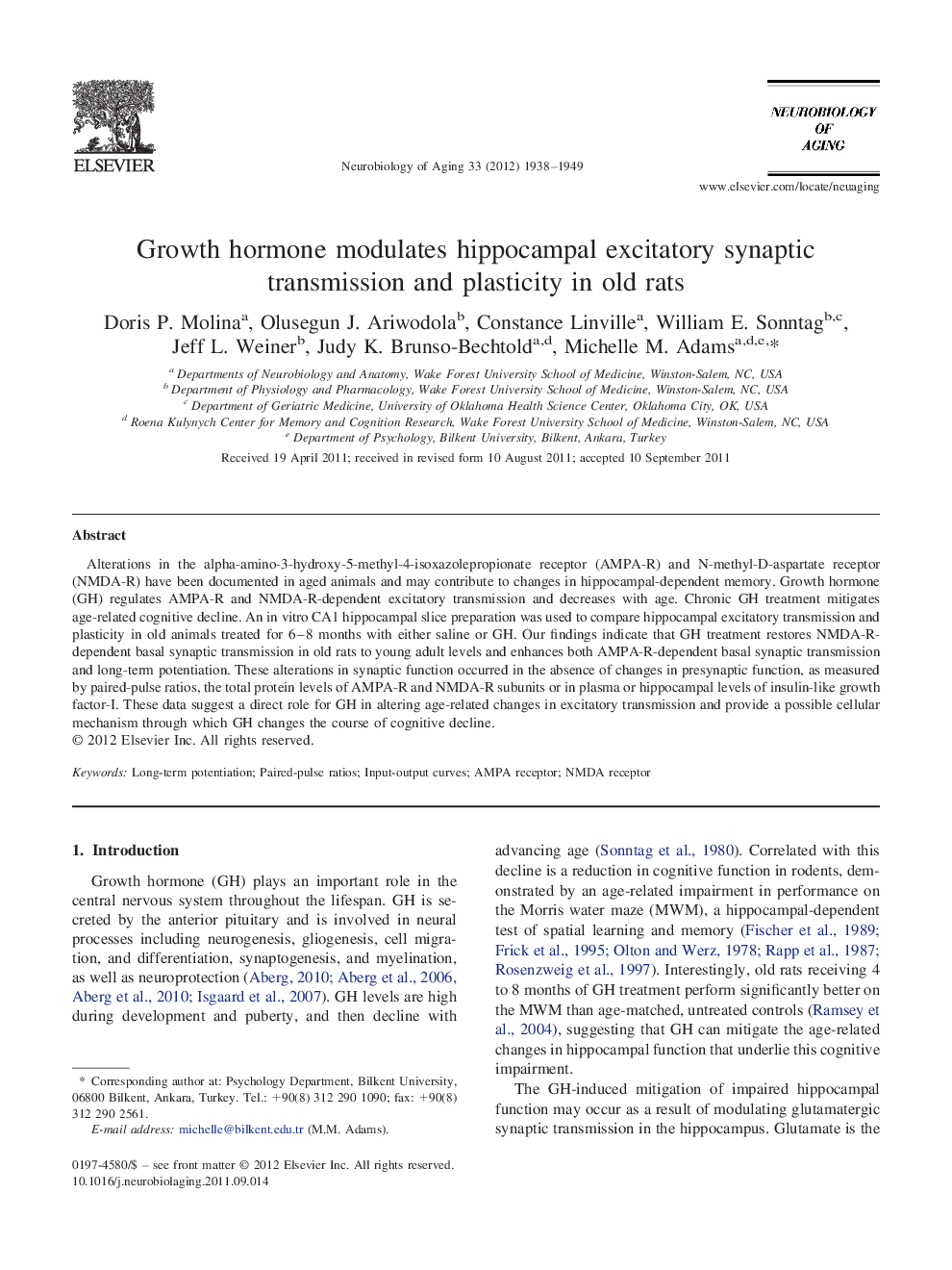| Article ID | Journal | Published Year | Pages | File Type |
|---|---|---|---|---|
| 6808289 | Neurobiology of Aging | 2012 | 12 Pages |
Abstract
Alterations in the alpha-amino-3-hydroxy-5-methyl-4-isoxazolepropionate receptor (AMPA-R) and N-methyl-D-aspartate receptor (NMDA-R) have been documented in aged animals and may contribute to changes in hippocampal-dependent memory. Growth hormone (GH) regulates AMPA-R and NMDA-R-dependent excitatory transmission and decreases with age. Chronic GH treatment mitigates age-related cognitive decline. An in vitro CA1 hippocampal slice preparation was used to compare hippocampal excitatory transmission and plasticity in old animals treated for 6-8 months with either saline or GH. Our findings indicate that GH treatment restores NMDA-R-dependent basal synaptic transmission in old rats to young adult levels and enhances both AMPA-R-dependent basal synaptic transmission and long-term potentiation. These alterations in synaptic function occurred in the absence of changes in presynaptic function, as measured by paired-pulse ratios, the total protein levels of AMPA-R and NMDA-R subunits or in plasma or hippocampal levels of insulin-like growth factor-I. These data suggest a direct role for GH in altering age-related changes in excitatory transmission and provide a possible cellular mechanism through which GH changes the course of cognitive decline.
Related Topics
Life Sciences
Biochemistry, Genetics and Molecular Biology
Ageing
Authors
Doris P. Molina, Olusegun J. Ariwodola, Constance Linville, William E. Sonntag, Jeff L. Weiner, Judy K. Brunso-Bechtold, Michelle M. Adams,
